by Wayne White
A robust new military challenge to what passes for the Libyan central government has further destabilized the country and placed Western and other diplomatic missions there in greater danger. Although definitions for “failed states” vary, there should be no doubt now that Libya has crossed that line — one it has been flirting with for quite a while. Under the circumstances, it is now time for the US, and other governments with diplomatic and civilian missions in Libya, to give serious, prompt consideration to evacuating their personnel.
Libya’s lacking security fundaments
The Libyan situation has been tenuous, violent, and jolting from crisis to crisis particularly since last year. Most militias of various local, tribal, and ideological affiliations that fought against Muammar Qadhafi’s regime remain under arms, in part because of Libya’s failure to establish a sizeable, fully trained national army or police force. They clash with each other and assert local autonomous rights, with some backing factions in the Libyan parliament, the General National Congress (GNC). Without other means of maintaining security, the government keeps a number of militias on its payroll for just that reason.
The conflicting militias have caused discord on the streets of Tripoli and the large eastern city of Benghazi; they control neighborhoods and other key pieces of real estate — even sometimes menacing the government for which they supposedly work.
The two dominant militias affecting government affairs in Tripoli have been the Islamist “Central Shield,” based in Libya’s third largest city, Misrata, and a group of secular-oriented militias based in the mountain region centered upon Zintan. They are aligned, respectively, with the Islamist and secular wings of the GNC.
This division within the GNC has significantly paralyzed that fairly elected body charged, among other things, with overseeing the drafting of a constitution as a prelude to the election of a permanent legislature.
The GNC’s original writ ran out in early February, so it extended its own mandate to finish the appointment of a constitutional drafting committee and to maintain continuity. Ever since, it has been branded by many Libyans — as well as self-appointed federalist rivals in eastern Libya — as illegitimate, with calls for it to step down.
The experiences of Libyan prime ministers reflect the dangerous instability plaguing the country. The GNC dismissed longstanding Prime Minister Ali Zeidan in March amidst a tiff over the weak Libyan navy’s failure to stop a tanker with bootleg crude from leaving a port controlled by upstart eastern Federalist and militia commander, Ibrahim Jathran. Yet Zeidan soldiered on despite being kidnapped in late 2013 by an Islamist militia. Then the GNC named Abdullah al-Thinni interim prime minister for two weeks. After gunmen attacked his family compound, al-Thinni resigned, but continues to serve pending the naming of a replacement.
In addition to its seriously flawed, erratic security and central authority, Libya’s governance at all levels is dysfunctional. To a great extent, Qadhafi is to blame. Inheriting a rather decentralized state from the late King Idris, Qadhafi played tribes and regions against each other to maintain power for 42 years. Qadhafi’s bizarre, ramshackle “Jamahiriya” concept of governance degraded rather than reinforced a sense of Libyan civil society, and important governmental and technical skills were woefully neglected. Libya is hugely dependent on foreign companies and contractors for a host of services.
The last key pillar that crumbled from underneath Libya’s waning post-Qadhafi societal stability was the implosion of the country’s oil exports from roughly 1.3 million barrels per day (bpd) in 2012 to only around 200,000 bpd since early this year. Since 2013, most export terminals and inland oilfields have been shut down by a mix of eastern federalist challengers, angry workers, disgruntled guards, or local militias.
Enter General Haftar
Libya’s latest travails stem from a robust challenge to the central government from the self-proclaimed Libyan National Army (LNA) led by former General Khalifa Haftar. Haftar denounced the central government back in February, but his appearance went almost unnoticed outside Libya.
On May 16, however, forces organized by Haftar struck extremist militias in Benghazi (especially Ansar al-Sharia) with troops, artillery and even helicopters “to cleanse the city of terrorists.” Intense, bloody fighting continued through much of the weekend resulting in over 200 casualties. On the 18th, Haftar loyalists, reinforced with pro-secular militia elements from Zintan, attacked the GNC in Tripoli, ransacking parliament, and seizing a member and two staffers for allegedly aiding extremists. Pro-Haftar Colonel Muktar Fernana declared the “freezing of the GNC.”
Since May 18, in the east, Haftar has secured the support of two Libyan Air Force (LAF) bases, and federalist renegade Jathran. Libya’s Special Forces commander even instructed his men in Benghazi to join Haftar’s effort. Then, the LAF’s most senior officer, Col. Gomaa al-Abbani, declared his support for Haftar on the 20th, quickly followed on the 21st by the Interior Ministry, Libyan UN Ambassador Ibrahim al-Dabashi (who said Haftar’s “Operation Dignity of Libya” was “not a coup…but a nationalist move”), as well as the biggest GNC political bloc, the secular National Forces Alliance (NFA). NFA leader Mahmoud Jibril said Libya had been “drowning in a swamp of terrorism.”
In addition, former Prime Minister Zeidan declared his support for Haftar from European exile, and sitting Prime Minister al-Thinni has called upon the GNC to stop working. Late on the 21st, Haftar appeared on TV, calling upon the country’s judiciary to form a “civilian presidential high council” to name a cabinet and oversee a transition toward the election of a new parliament.
Haftar’s challenge might seem refreshing to some, but the situation on the ground has deteriorated markedly. Following al-Abbani’s statement of support, various elements launched rockets against and burned offices on LAF bases in Tripoli. Libya’s Navy commander was wounded in an assassination attempt in Tripoli yesterday. On the 20th, a Chinese engineer was murdered by gunmen in Benghazi.
In Tripoli, more fighting took place May 21, with rockets falling on a residential area last night. GNC members tried to convene at another locale to elect a prime minister, but gave up without a quorum and after coming under rocket fire. That prompted GNC Speaker Nuri Abu Sahmain’s call on the 21st for Misrata’s Islamist “Central Shield” militia to take the field against Haftar to protect the remainder of the GNC and re-secure parliament’s original premises. In response to Sahmain’s call, Misrata’s notoriously tough militiamen were observed taking up positions in the capital this morning.
Foreign diplomats facing more danger
The foreign diplomatic community could hardly remain unaffected. Already, gunmen had attacked the Russian Embassy in Tripoli in October 2013, after which Zeidan reiterated his “unlimited commitment to the…security” of all diplomatic missions. Yet, as we have seen, Zeidan could not even protect himself.
The Jordanian ambassador was kidnapped by Islamic militants in March to free an extremist held in Jordan, with the ambassador released in April in exchange for the prisoner. The Jordanian Embassy was subsequently evacuated. Two kidnapped Egyptian diplomats were only freed in January when Egypt agreed to swap a hard-line Islamist militia leader detained in Cairo. Both cases set dangerous precedents.
After recent threats, Algeria sent its special forces to extract its embassy staff from Tripoli on May 16, and then evacuated all Algerian state oil personnel on the 19th. The Saudi Embassy staff also left that day. Likewise, personnel of several major oil companies and private businesses have fled overseas.
In this veritable maelstrom of violence amidst uncertainty regarding which side controls what in Tripoli, all foreign diplomatic missions and other foreigners are at considerable risk. With Islamic extremists under vigorous attack, there is also a greater danger that such elements will attempt to retaliate against foreign governments imagined to encourage or welcome what Haftar & Co. have been doing.
This makes the US a prime target. A number of Islamic militant elements (like Ansar al-Sharia, formally declared a terrorist group by Washington), militias, or gunmen could attack the US embassy in Tripoli. If so, there is no effective Libyan security to bar the way.
Last week, the Obama administration began positioning US military assets in Sicily to carry out a potential emergency extraction of embassy personnel, including 200 troops from the Special Purpose Marine Air-Ground Task Force and MV-22 Osprey helicopters. On the 20th, the Pentagon said 60 more Marines were sent plus more Ospreys (now totaling 8). To avoid flying into an already “hot” situation in which a facility is already under attack or surrounded (like the one that wounded 4 US Navy SEALS aboard Ospreys in an aborted attempt to rescue US civilians in South Sudan last December), it would be prudent to execute that contingency plan as soon as possible.
During my State Department career, I participated several times in final deliberations over such decisions. There were always those who opposed withdrawing (regardless of the risk of staying), arguing that leaving the countries in question would reduce the US’ ability to influence events on the ground. Of course, in this case, for quite some time now the US and other Western diplomatic missions have had precious little impact on what has been unfolding in Libya.
Photo: The French embassy in Tripoli, Libya was bombed on April 23, 2013. It was the first attack on the French embassy in the capital.

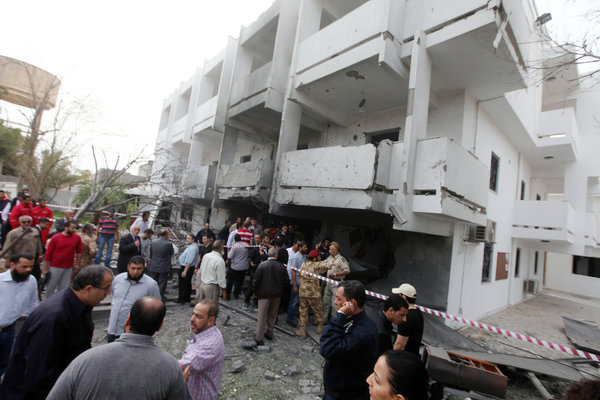
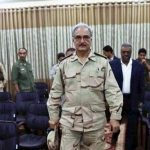
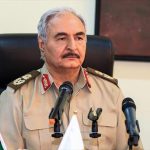
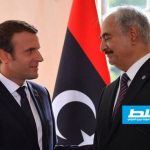
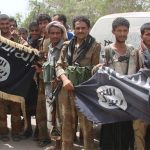
So, another failure for the U.S.State Department. Pretty obvious that no one seems to know what they’re doing in this so-called overthrowing the dictators that were yesterday partners or boogieman. What a mess. Not even the military seem to get anything right. They know how to kill, but sure don’t know what to do afterward.
Although an informative article in many ways, I am sick to death of this tired horse that Libya’s current state is even remotely related to Gadaffi. That analysis can only be conducted after fully assigning blame to the lib-hawks and neo-cons who destroyed its police and military, which was very small to begin with. Additionally collaborating with Islamists to bring down the state. Clinton openly boasted that Libya had no army, thanks to her. Gadaffi did a lot of good things as well as some very bad things. It is simplification to call an attempt at creating an autocratic Socialist Arab Islamic Utopia as ramshackle. I at least am not ready to discard into the dustbin of history, the attempts of the 1969 revolution to create a society that eliminated human insecurity, with very little (but some!) tolerance for dissent.